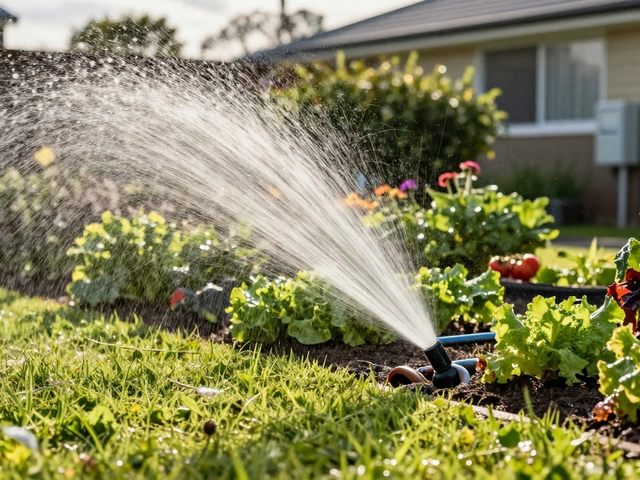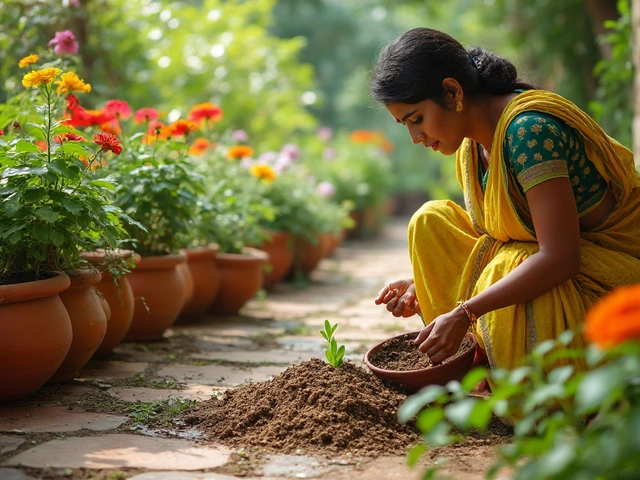Health Impact of Gardening: What You Need to Know
Ever wonder why a simple weekend in the garden feels so refreshing? It’s not just fresh air – gardening can lift your mood, strengthen your body, and even improve the food you eat. Below we break down the real health perks and the common pitfalls, then give you clear steps to get the most out of every sow‑and‑reap session.
Physical and Mental Boosts
Digging, weeding, and planting are low‑impact workouts. Moving around a garden for an hour burns about 250‑300 calories, similar to a light jog. The repetitive motions also keep joints lubricated without the strain of high‑intensity sports. On the mental side, the rhythm of garden tasks triggers a calming effect. Studies show that spending time among plants lowers cortisol, the stress hormone, and can lift feelings of anxiety.
Even indoor plant lovers reap mental rewards. Watching a leaf unfurl or tending to a pothos gives a sense of accomplishment and a daily reminder to pause. If you’re short on space, a small herb rack on the kitchen window can provide the same stress‑relief boost.
Nutrition and Food Safety
Home‑grown veggies are often richer in vitamins than store‑bought ones because they’re harvested at peak ripeness. Growing broccoli, for example, gives you a direct source of vitamin C and fiber that stays fresh longer when picked early. To keep those nutrients intact, wash produce gently and store in a cool, dry place.
But fresh produce also brings risk if you ignore soil health. Heavy metals, pesticide residues, or contaminated water can sneak into your crops. Test soil regularly, use organic compost, and filter tap water if you suspect chlorine levels that could harm sensitive seedlings.
Preventing Common Hazards
Garden work can lead to aches, cuts, or allergic reactions. Wear gloves when handling soil or pruning thorny plants, and stretch before you start to protect your back. If you’re prone to allergies, choose low‑pollen flowers like marigolds instead of high‑pollen varieties.
For indoor gardeners, beware of over‑watering. Stagnant water invites root rot, which weakens plant immunity and can release mold spores into your home. Let tap water sit for a few hours to let chlorine evaporate, then use it to water your plants.
Making Your Garden Healthier
Companion planting is a simple way to boost plant health and reduce pests. Pair basil with tomatoes to repel flies, or grow beans alongside corn for natural nitrogen fixation. Adding a layer of mulch conserves moisture, cuts weed growth, and keeps soil temperature steady – all of which help your plants stay vigorous.
If water conservation is a priority, drip irrigation delivers moisture right to the roots, saving up to 50% of water compared to sprinklers. Bury the drip line a few inches deep to protect it from sun damage and reduce evaporation.
In short, gardening feeds your body, mind, and plate when you pay attention to safety and smart practices. Whether you tend a balcony herb garden or a full‑size backyard, the health impact is real – just remember to move wisely, protect your plants, and enjoy the process. Happy gardening!
Why White Rice Might Spike Your Cholesterol Levels
Delving into the relationship between white rice consumption and cholesterol levels, this article uncovers how the refining process affects nutritional value. Learn about healthier alternatives and practical tips for making better dietary choices. Discover the impact of different cooking methods on health and explore the cultivation practices that influence rice's nutritional profile.
About
Rice Cultivation
Latest Posts


Balcony Decorating Ideas: Turn Your Small Outdoor Space into a Stylish Retreat
By Alden Thorne Oct 13, 2025

Most Popular Flower in India: Why the Marigold Reigns Supreme
By Alden Thorne May 27, 2025

What Is a Sprinkle Irrigation System? A Simple Guide for Home Gardeners
By Alden Thorne Dec 1, 2025

